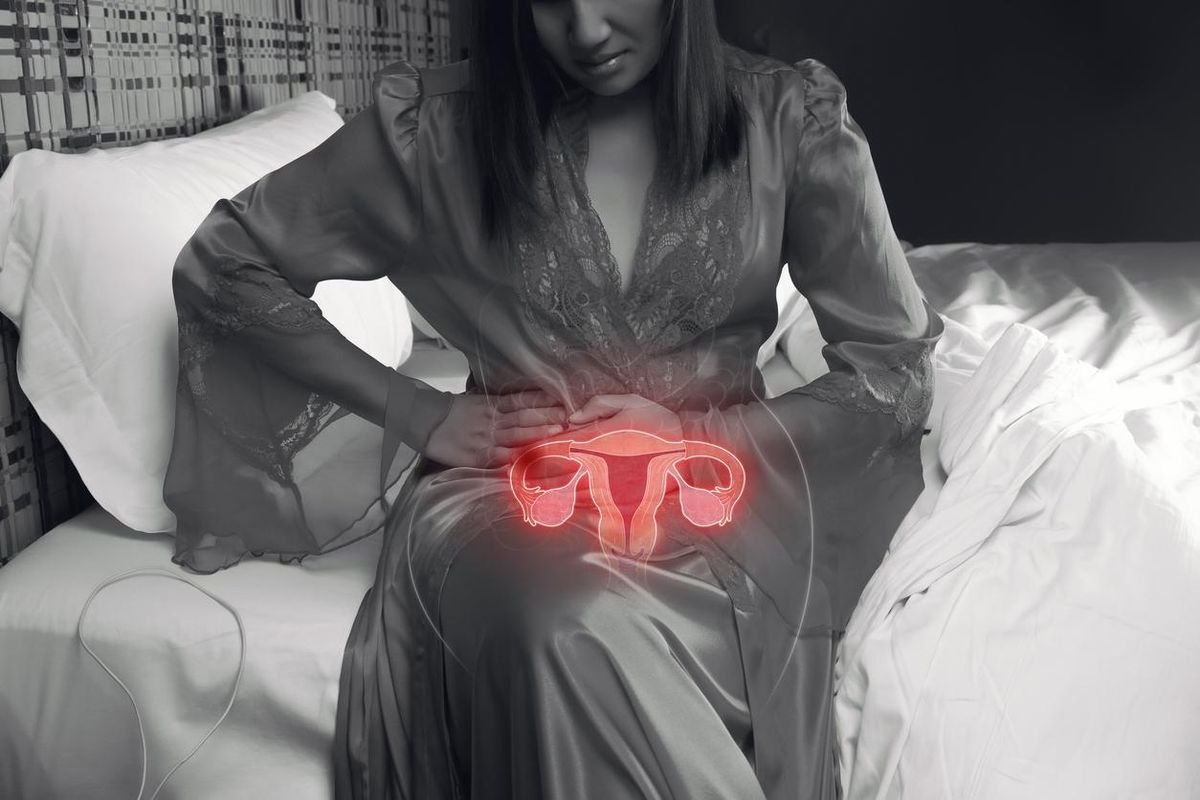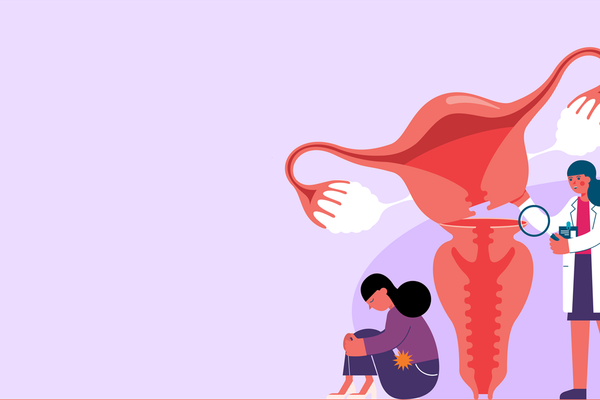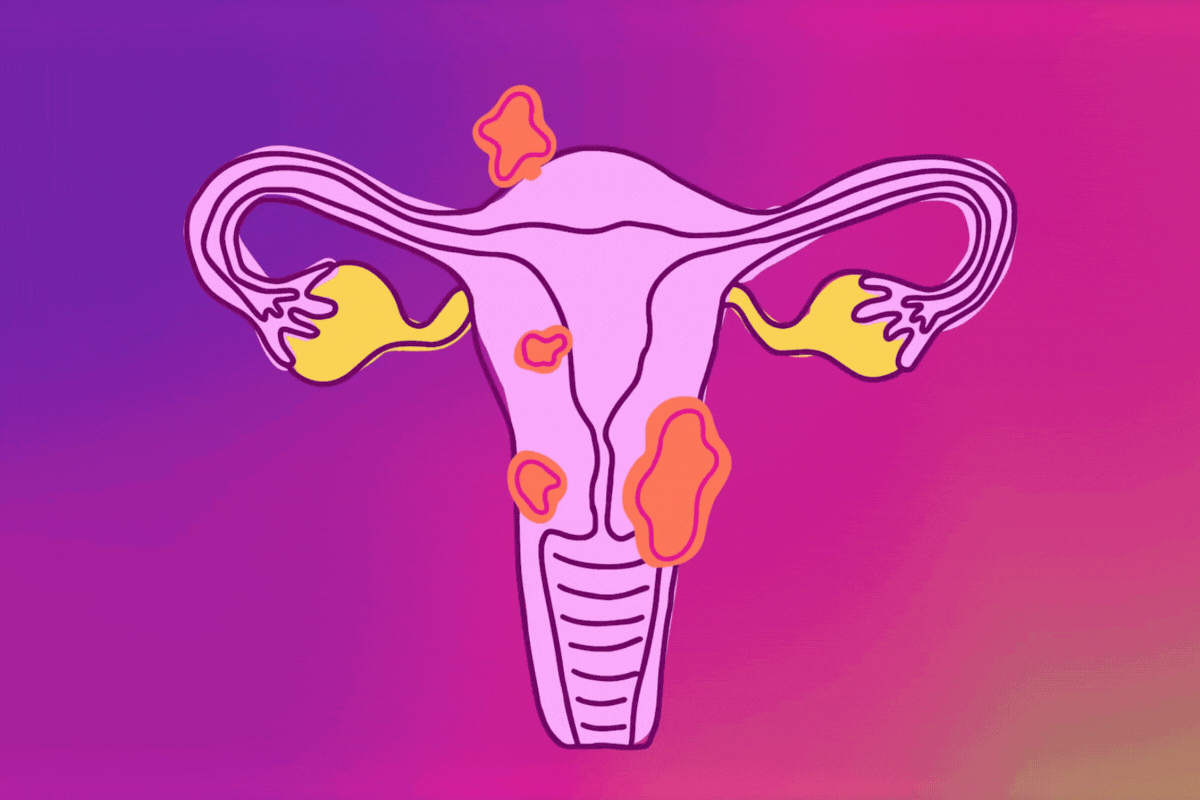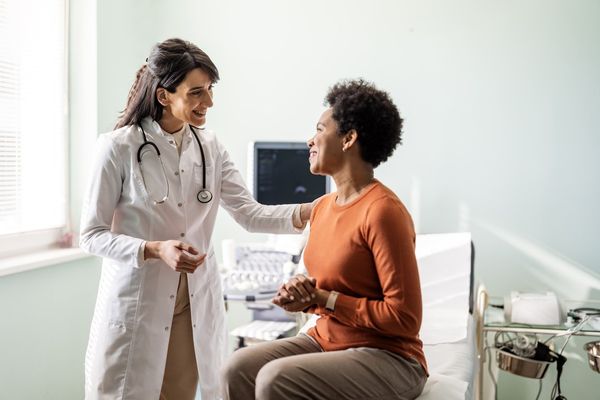A doctor first informed Alison C., now in her 30s, that she noticed an abnormality during a routine GYN exam when Alison was 23 years old. Although the doctor mentioned that Alison might consider having surgery when she was ready to have children, it wasn’t until a few years later that Alison realized something was wrong when she noticed an increase in bathroom frequency.
“Being a teacher who learned to hold it forever, I knew that something was going on when the time between trips were shortened and more frequent,” she said. A follow-up ultrasound revealed a large fibroid near and pushing on her bladder. When she had surgery to remove it, she was surprised when doctors informed her that she had even more fibroids: A total of five were removed, including a fist-sized fibroid located on top of her uterus that the doctor said would have caused infertility had it not been removed.
As Alison experienced, fibroids are actually the most common noncancerous tumor in women and are estimated to be the sole cause of infertility in 2%-3% of those experiencing the condition. For people who are able to conceive with fibroids, the risk of miscarriage and pregnancy loss is also higher.
What exactly are fibroids?
Fibroids are benign growths of the muscle layer of the uterus. The symptoms of fibroids can vary based on exactly where they’re located in someone’s body and how large they are. For instance, fibroids inside the uterus can lead to heavy menstrual bleeding, and larger fibroids can make period cramping worse or push on other organs in the body, particularly the bladder or intestines, causing pain or discomfort.
Fibroids can also cause symptoms and health conditions, such as:
- Anemia
- Increased urinary frequency
- Pain
- Bleeding between periods
- Reproductive issues
- Pain during sex
- Miscarriage
- Infertility
Fibroids are very common in women, and the complications can be severe. Rashmi Kudesia, M.D., a fertility specialist and member of HealthyWomen’s Women’s Health Advisory Council explained that up to 7 out of 10 white women and up to 8 out of 10 Black women may have fibroids. “Fibroids are quite common, occurring in more than half of women depending on their ethnic and racial background,” she said. The majority of these cases do not cause symptoms and, therefore, may remain undiagnosed. And in those with symptoms, it often takes years before the explanation is uncovered.
The relationship between fibroids and fertility
Although fibroids may cause infertility in some women, someone with fibroids may not make the connection. This may be because their fibroids are asymptomatic or, if they are using hormonal birth control before they’re ready to conceive, that can control their symptoms and the growth of the fibroids. It’s only when they stop taking hormonal birth control that the symptoms from the fibroids may become apparent.
From a fertility perspective, Kudesia said that fibroids can interfere in several different ways. Fibroids can both cause infertility — preventing successful conception or implantation — or lead to an early miscarriage. For instance, fibroids growing into the uterus could stop a pregnancy from being able to successfully implant. Or fibroids growing near the connection between the uterus and Fallopian tubes can block off a tube, preventing a fertilized egg from entering the uterus.
Fibroids might affect fertility in another way as well. In addition to creating a problem as a result of their physical location, there are also certain cellular changes that come with having fibroids that may influence how implantation happens in the uterus. Fibroids may decrease fertility by causing increased contractions in the uterus when the egg is trying to implant, changing blood flow and causing inflammation.
How fibroids are treated
The good news is that fibroids are very treatable once they’re identified. Kudesia said most doctors will recommend that fibroids causing symptoms be surgically removed if they’re in the uterus and if they’re large enough to possibly cause problems in pregnancy (typically with a diameter greater than a pool ball). Doctors can perform a surgery called a myomectomy, which removes fibroids from the uterus but keeps the uterus itself intact. For other people, a hysterectomy — which removes the entire uterus and, sometimes, the ovaries as well — will be the best choice.
Depending on the size and location of the fibroids, there are multiple ways to shrink, destroy or remove them, as well as reduce or stop bleeding. Options include embolization to shrink fibroids and endometrial ablation to reduce or stop heavy bleeding, or medical treatments such as gonadotropin releasing hormone (GnRH) agonist therapy with or without hormonal therapy, GnRH antagonists with hormonal therapy, hormonal contraception such as IUDs, or tranexamic acid.
If you have fibroids, you should discuss the best treatment method for your situation with your HCP.
How fibroids are diagnosed
Diagnosing fibroids can be tricky, but Kudesia encourages anyone who suspects they may have fibroids to talk to their HCP about ordering a baseline ultrasound. And if you have symptoms such as intense cramping, heavy bleeding or a change in your urinary habits, or if you have a family history, you should also let your HCP know. This is especially important if you’re trying to get pregnant because the presence of fibroids can pose a danger to you and the fetus if you do get pregnant.
Kudesia encourages anyone with troublesome symptoms to talk to their healthcare provider about the possibility of fibroids.
“If you are worried you may have fibroids, definitely seek care,” she said. “It is an easy diagnosis to make.”
*No last name has been used for privacy.
This resource was created with support from Myovant Sciences GmbH.
- The Double Whammy for Black Women With Fibroids ›
- What You Need to Know About Uterine Fibroids ›
- Top Causes of Infertility in Women ›
- Fibroids ›
- Clinically Speaking: What Are My Options Following a Uterine Fibroid Diagnosis? ›
- Opciones quirúrgicas para fibromas - HealthyWomen ›
- Surgical Options for Fibroids - HealthyWomen ›
- Annie tiene anemia causada por fibromas - HealthyWomen ›
- Annie Has Anemia from Fibroids - HealthyWomen ›
- En qué forma afectan los fibromas todos los aspectos de una persona - HealthyWomen ›
- How Living with Fibroids Impacts the Whole Person - HealthyWomen ›
- What Doctors Said Was Perimenopause Was Fibroids - HealthyWomen ›






